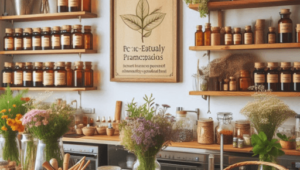Natural Beauty Remedies: DIY Skincare at Home
Certainly! Here are 30 points along with their respective pros and cons for using natural beauty remedies and practicing DIY skincare at home:
1. Honey as a Moisturizer:
- Pro: Honey is a natural humectant that can lock in moisture.
- Con: It may not be suitable for all skin types, especially those with allergies to bee products.
2. Coconut Oil for Makeup Removal:
- Pro: Coconut oil can effectively remove makeup and moisturize the skin.
- Con: It can be comedogenic for some, potentially causing breakouts.
3. Oatmeal Face Mask:
- Pro: Oatmeal soothes sensitive skin and helps with exfoliation.
- Con: Large oatmeal particles may be too abrasive for some skin types.
4. Cucumber Slices for Puffy Eyes:
- Pro: Cucumber slices have a cooling effect and can reduce puffiness.
- Con: Results may be temporary, and it might not work for severe puffiness.
5. Aloe Vera Gel for Sunburn:
- Pro: Aloe vera provides relief and promotes healing for sunburned skin.
- Con: Some individuals may be allergic to aloe vera.
6. Lemon Juice for Brightening:
- Pro: Lemon juice contains natural acids that can brighten the skin.
- Con: It can be harsh and cause irritation, especially in direct sunlight.
7. Turmeric Face Mask:
- Pro: Turmeric has anti-inflammatory properties and can help with acne and blemishes.
- Con: It can stain the skin and may not be suitable for all skin tones.
8. Green Tea Toner:
- Pro: Green tea is rich in antioxidants and can soothe the skin.
- Con: Some people may be sensitive to the caffeine in green tea.
9. Sugar Scrub for Exfoliation:
- Pro: Sugar is a natural exfoliant that can remove dead skin cells.
- Con: It may be too abrasive for sensitive skin if not used gently.
10. Yogurt Face Mask: – Pro: Yogurt contains probiotics that can balance the skin’s microbiome. – Con: Dairy-based products may not be suitable for those with lactose intolerance or dairy allergies.
11. Avocado as a Hydrating Mask: – Pro: Avocado is rich in healthy fats and can deeply hydrate the skin. – Con: It can be messy to apply and rinse off.
12. Baking Soda for Acne: – Pro: Baking soda can help exfoliate and unclog pores. – Con: It can disrupt the skin’s natural pH balance and cause irritation if used excessively.
13. Tea Tree Oil for Acne: – Pro: Tea tree oil has antimicrobial properties and can help with acne. – Con: It should be diluted, as pure tea tree oil can be too harsh for the skin.
14. Olive Oil as a Makeup Remover: – Pro: Olive oil is gentle and effective at removing makeup. – Con: It may not rinse off easily and can leave a residue.
15. Rosewater as a Toner: – Pro: Rosewater can hydrate and refresh the skin. – Con: It may not provide the same benefits as professionally formulated toners.
16. Egg White Face Mask: – Pro: Egg whites can temporarily tighten the skin and reduce the appearance of pores. – Con: Some people may be allergic to eggs, and the effect is not long-lasting.
17. Apple Cider Vinegar as a Toner: – Pro: Apple cider vinegar can balance the skin’s pH and reduce acne. – Con: It has a strong smell and should be diluted to prevent skin irritation.
18. Oils for Moisturizing: – Pro: Natural oils like jojoba, argan, and almond oil can hydrate the skin. – Con: Choosing the right oil for your skin type is essential, as some oils can clog pores.
19. Banana Face Mask: – Pro: Bananas are rich in vitamins and can nourish the skin. – Con: It may not provide immediate results and can be messy.
20. Witch Hazel as a Toner: – Pro: Witch hazel has astringent properties and can help with oil control. – Con: It can be drying for some skin types if overused.
21. Papaya Enzyme Mask: – Pro: Papaya enzymes can exfoliate and brighten the skin. – Con: It may cause tingling or irritation for sensitive skin.
22. Cinnamon Lip Plumper: – Pro: Cinnamon can temporarily plump the lips. – Con: It can be too intense for some and may cause a burning sensation.
23. Tomato Juice for Oily Skin: – Pro: Tomato juice can help control excess oil and tighten pores. – Con: It may not provide long-lasting results.
24. Clay Masks: – Pro: Clay masks can detoxify and clarify the skin. – Con: Some clays can be drying, and leaving them on too long can lead to over-drying.
25. Shea Butter for Dry Skin: – Pro: Shea butter is a rich moisturizer for dry and sensitive skin. – Con: It can be heavy for some skin types and may cause breakouts.
26. DIY Lip Scrub: – Pro: A homemade lip scrub can exfoliate and soften lips. – Con: Overuse can lead to irritation, and some ingredients may be too harsh.
27. Rice Water as a Toner: – Pro: Rice water can brighten and hydrate the skin. – Con: It may not provide the same benefits as commercial skincare products.
28. Green Clay Spot Treatment: – Pro: Green clay can help dry out and reduce the size of blemishes. – Con: It may not work for all types of acne, and overuse can be drying.
29. Lavender Oil for Relaxation: – Pro: Lavender oil can be added to DIY skincare products for a soothing scent. – Con: Some individuals may be sensitive or allergic to essential oils.
30. Natural Remedies Can Vary: – Pro: DIY skincare allows you to customize treatments based on your needs. – Con: Effectiveness can vary depending on individual skin types and sensitivities.
While natural beauty remedies and DIY skincare can offer benefits, it’s essential to be cautious and mindful of potential cons. Always perform a patch test, research ingredients, and consult a dermatologist if you have specific skin concerns or allergies. Additionally, it’s wise to balance DIY treatments with professionally formulated skincare products for a well-rounded skincare routine.














Post Comment
You must be logged in to post a comment.